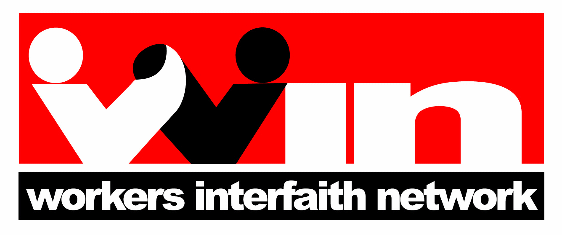Every night before bedtime, my husband, stepson and I read a Bible story together. Right now we're reading Exodus, and I've been reminded how much Moses can teach us about doing organizing.
For years, I've found comfort in Moses' reluctance to be sent by God to Pharaoh. Even after God tells him all of the wonderful signs Moses will be able to do in order to convince the people that God has sent him, Moses still says "O my Lord, please send someone else." As an introvert who has spent most of my life avoiding conflict, I often find myself mouthing those words along with Moses.
But last night what caught my attention is the advice that Jethro, Moses' father-in-law, gives to him after the Israelites have left Egypt. In Exodus 18:13-24, Moses is becoming exhausted because he is trying to take care of all the community's needs by himself. Whenever there is a dispute among the people, they come to Moses to have it resolved.
Jethro gives Moses a couple of pieces of advice that I think have relevance for any of us who are organizing for justice:
1) Jethro says that Moses should teach the people the statues and instructions that God has for them. It seems like Moses has been giving these statutes out one by one as people come to him to solve a conflict. But this gives people little power to solve their problems themselves. The more people in the community there are who can teach each other, the stronger the community will be.
We try to live by this principle in WIN's Workers' Center. Workers usually contact the Center for the first time because they've experienced wage theft, or have had some other abuse of their rights. Before workers begin a case with the Center, they have to participate in a training on what labor rights workers have in this country. As time has gone on, we've moved from staff leading these trainings, to experienced workers leading them. Workers leave these trainings knowing what their rights are, but they also leave better equipped to inform other workers of how to stand up against abuse.
2) Jethro pushes Moses to give up the illusion that he can take care of everything himself. He tells him "what you are doing is not good. You will surely wear yourself out, both you and these people with you. For the task is too heavy for you; you cannot do it alone." So Jethro suggests that Moses train other Israelites who are trustworthy to be judges.
It seems like pretty obvious advice, but how often do we try to do things alone, or with just one or two other people? The strongest community organizing groups are ones that are continually building up new leaders who do everything from speak to the media to recruiting members.
I'll be honest with you. At Workers Interfaith Network, we need to do a better job of finding new leaders to add to those who've been with us for the last 5 - 8 years. For most of the folks who are in leadership positions today in WIN, they started off as volunteers who helped when they could with phone banking, picketing, delegations to business owners, sending mailings, and more. If you'd like to volunteer, please fill out our interest form to let us know the specific ways you'd like to help.
When I think back over the last eight years, since I founded Workers Interfaith Network, I'm amazed to think of all the people who have shared the task of leading our work. So many people have given sacrificially of their time and their skills to seek justice with low-wage workers. Alone, it would have been too much for any person. Together, we have accomplished much more than we dreamed was possible.
Hello world!
3 months ago





I am truly glad I read this. It's not often I come across biblical passages possessing such relevance outside of church (oh sure, the faith community surely does - but not those of us who don't read scripture as often as we should).
ReplyDeleteIt's comforting to know that our Lord's plan pertains to even we common, more secular folk and that it includes advice for us all.
Thank you.